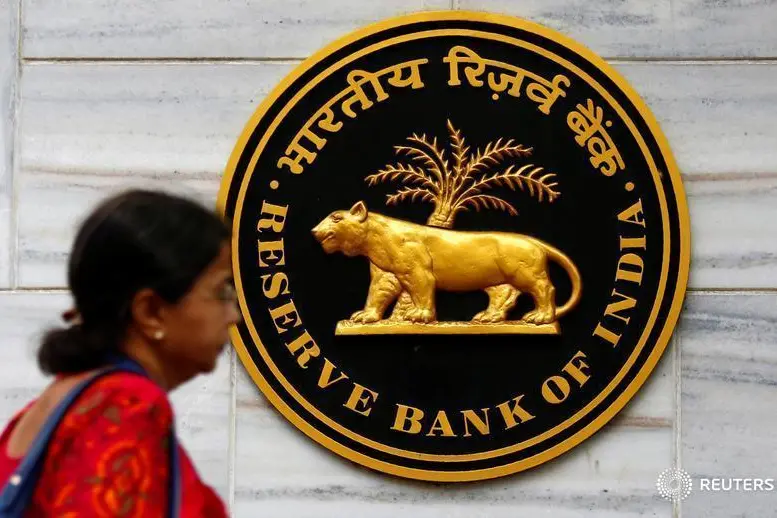PHOTO
Reserve Bank of India (RBI) Governor Shaktikanta Das attends a news conference after a monetary policy review in Mumbai on Wednesday. — Reuters
Lending rates of Indian banks are expected to go up as the cost of funds is expected to rise further following the fifth consecutive increase of the key repo rate by the Reserve Bank of India on Wednesday.
The rate hike by 35 basis points to 6.25 per cent, the fifth since May 2022 by the RBI in a bid to rein in retail inflation will also result in a rise in EMIs on vehicle, home and personal loans. The external benchmark linked lending rate (EBLR) of banks will also rise by 35 bps — one basis point is one-hundredth of a percentage point— as such loans are linked to the Repo rate. As much as 43.6 per cent of the total loans are now linked to the Repo rate, banking analysts said.
They said marginal cost of funds-based lending rates (MCLR), which accounts for 49.2 per cent of the loans portfolio of banks, are also expected to move up. Deposit rates are also expected to rise in the near future.
Announcing the rate increase, RBI governor Shaktikanta Das said on Tuesday that the worst of inflation is behind.
"While inflation is moderating, but there is no room for complacency. We have to be watchful and nimble in our actions."
The RBI’s Monetary Policy Committee also lowered Indian economy’s growth forecast to 6.8 per cent from 7.0 per cent for the current financial year amid concerns over the “bleak” global economic outlook, and retained its retail inflation forecast at 6.7 per cent.
India's annual retail inflation eased to a three-month low of 6.77 per cent in October, helped by a slower rise in food prices and a higher base effect, strengthening bets on smaller rate increases by the RBI going ahead. But households’ inflation expectations remain high as food price inflation continues to remain elevated. Weakness in the rupee against the US dollar is adding to inflationary concerns at the RBI given that a third of the CPI basket consists of import, experts said.
The RBI has raised rates by a cumulative 225bps since the start of the tightening cycle in April 2022, lagging behind the US Federal Reserve’s 350bps increases over the same period. The last three hikes in Repo rate were by 50bps each.
Anuj Puri, chairman of Anarock Group, said with repo rates now at 6.25 per cent, there may be some repercussions on housing uptake.
“This hike will undoubtedly push up home loan interest rates, which had already crept up after four consecutive rate hikes this year. However, as long as interest rates remain in single digits (mainly within 9.5 per cent) the impact on housing will at best be moderate. If they breach this point, we will see some real pressure on residential sales volumes in the months to come – especially in the affordable and lower mid-range housing segments.”
Pritam Chivukula, treasurer, Credai, Maharashtra, said the decision to hike the interest rates to tackle the inflation and ensure domestic economic recovery was a no-brainer.
“The sharp acceleration of rates consecutively for the fifth time in a short period will have a short-term effect on the sentiment of homebuyers as low interest rates have been the biggest factor in the resurgence for real estate demand in the last two years. We hope that the state Government will step-in again to lighten the homebuyer’s load by reducing stamp duty to boost the sentiments."
Kaushal Agarwal, chairman, of The Guardians Real Estate Advisory, said the rising cost of house ownership led by higher EMI, higher stamp duty and other factors has not so far affected real estate sales, which is a firm indicator of genuine demand for housing. “But any further hike in the repo rate might temporarily limit the growth momentum of the real estate sector."
Samyak Jain, director, Siddha Group, said the increase in lending rates would impact the quantum of home loans offtake and push EMIs upwards.
“The EMI - driven housing market will thus have a cumulative effect and gradually it will slower the housing inventory turnover by weakening the homebuyers' affordability shadowed by increased interest rates. A lesser repo rate hike would have helped tackle inflation, yet managing growth.”
Shraddha Kedia-Agarwal, director, Transcon Developers, said the market already had started seeing a vertical movement in the home prices from the past few months which had a minimal impact on the housing demand.
“But, this decision will further put a dent on the homebuyer's sentiments impacting the overall demand for a short period of time."
Himanshu Jain, vice-president of Sales, Marketing and CRM, Satellite Developers, said the rising property prices had already added to the woes of the homebuyers and now the decision of RBI to increase the repo rate will temporarily dent the current demand momentum.
“Also, for first-time home buyers, acquiring a home is considered as the biggest asset and these short-term decisions are likely to have a major impact on a buyer’s decision."
Bhushan Nemlekar, director, Sumit Woods Limited, said thee cost of borrowing for both developers and buyers will be impacted and this will result in undesired rate hikes across the spectrum. “However, we did not see much impact on the buying spree in the last couple of quarters since there are genuine buyers in the market to keep the momentum going."
Dr Sachin Chopda, managing Director, Pushpam Group, said the hike is likely to shrink liquidity in the economy overall, especially impacting the investor’s sentiments.
“There will be a short-term pause on the minds of the investors while assessing the volatility of the current market dynamics. However, they are bound to return soon in the market once it is stable.’’
— issacjohn@khaleejtimes.com
Copyright © 2022 Khaleej Times. All Rights Reserved. Provided by SyndiGate Media Inc. (Syndigate.info).





















